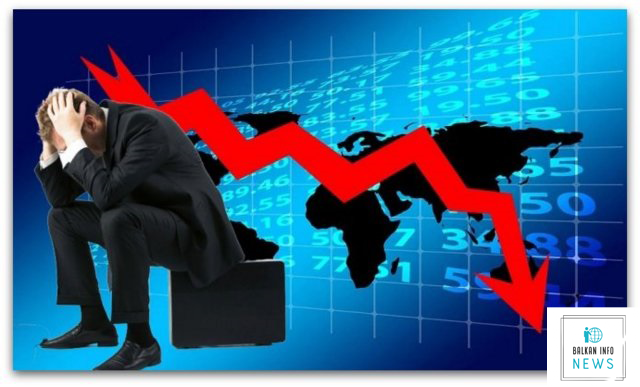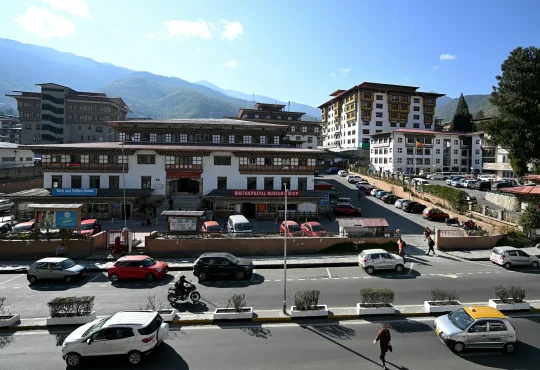
Thanks to its hegemonic position in the EU, Germany became an economic superpower, and then, within weeks of the war in Ukraine, it showed how weak it was politically. Berlin coat.
At the beginning of the war, analyzes political analyst Miroslav Samadzic, Ukraine was expected to be quickly defeated, but it resisted in the conflict with the economically and militarily much stronger Russia. The most interesting consequence of the war so far is the collapse of Germany. Thanks to its hegemonic position in the EU, Germany became an economic superpower, and then in just a few weeks it showed how weak it was politically. Berlin coat.
Economist Joseph Halevy claims that since the fall of the Berlin Wall and the fall of the USSR, Germany has been trying to build its own economic bloc. In the western part of that bloc are Austria, Switzerland, Belgium and the Netherlands, and in the eastern Czech Republic, Slovakia, Hungary, Poland and Slovenia (Halevi left out Croatia for unknown reasons), with different roles.
The entire bloc has a population of 196 million compared to Germany’s 83 million and a GDP of $7.7 trillion compared to Germany’s $3.8 trillion. This makes it the third largest economic power in the world – smaller than the US and China, but larger than Japan.
German exports to Austria and Switzerland – which have a combined population of 17 million – are 132 billion euros, compared to 122 billion euros of German exports to the United States and 102 billion euros to France. The value of German trade with Italy is less than that with Poland, despite Italy having a larger population (60 vs. 38 million) and almost twice the per capita income.
According to Halevi, there has been a reorientation of the German industrial apparatus from other European partners towards its own economic bloc, on the one hand, and trade with China, on the other. Other members of the German bloc also saw significant increases in trade with China.
The natural consequence of this process is the formation of the Eurasian economic zone, both because of China’s real need for Russian raw materials, and because of the increasing importance of railway infrastructure centers in Russia, Kazakhstan and Ukraine.
During the last decade, the first convoys of freight trains left China for Dortmund and the Netherlands. The Germans, at least in industrial circles, intended to create an economic synergy between China, Russia, Kazakhstan, Ukraine and the German bloc.
The ultimate goal of the German bloc, according to Halevi, was to create a Eurasian continental front with Germany and China at the extreme poles and Russia connecting them. That is why the Germans, ignoring Washington’s opposition, insisted on the construction of the Nord Stream 2 gas pipeline. The failure of that project is the first consequence of the Ukrainian war.
The war effectively ended the idea of a common Eurasian space, as Germany was forced to revise its relations with China and close the Russian channel of communication with it. Also, Germany is prevented from using Russia as a reservoir rich in resources (Lebensraum – or rather Grosraum) . Now instead of a “big space”, Russia has become an insurmountable geopolitical obstacle.
To Halevi’s analysis, it should be added that countries that are not members of the EU, such as Serbia, are part of the German bloc. It is on the periphery of the German economic space in Central Europe, in a less favorable position than other states from that region that are members of the Union.
Halevi points out that because of the Ukrainian war, German strategists are forced to reconsider their position towards the United States and their relations with other European countries. In other words, Germany’s attempt to be autonomous from the US failed.
There are no convincing explanations why the German political and economic elites agreed to such a turn. Cooperation with Russia has been more than favorable for the German economy, whose industry is competitive on the world market thanks to cheap energy from Russia. That advantage is now lost.
The only explanation for such economic suicide is that the German state is not powerful enough in international relations to be able to protect the interests of its economy. With the Ukrainian war, it has been returned to a position of subservience to the United States, as was the case before reunification in 1989. It is no longer able to maintain hegemony even in Europe, let alone have the status of a power of the first rank in the world system.
The creators of the great German Eurasian economic strategy were calculating. Namely, they did not take into account the elementary fact that such a concept represents a mortal danger for the United States. The economic integration of Germany, Russia and China and other countries associated with them would mean the end of America’s leading role in the international system.
Angela Merkel has led Germany into Putin’s energy trap. Until the outbreak of the conflict in Ukraine, such an orientation could be defended politically, as it brought great economic benefits. The decision to build Nord Stream 2 was made in 2015, when it was quite clear that the conditions in Eastern Europe were changing drastically.
Analysts point out that after 2014 it was logical for Germany to reduce its energy dependence on Russia, but it still insisted on maximizing the benefits of trade with it. Thus, Germany finds itself in the paradoxical position of depending on imports of cheap energy from Russia and access to the Chinese market, while politically being part of the Western alliance.
Some observers believe that tensions will grow in Germany between the pragmatic economic elites, who believe that cooperation with Russia is necessary, and the political Euro-Atlantic elites who plot a conflict with it.
German strategists ignored the fact that economics and politics are intertwined. The concept of economic development of Germany that did not take into account the interests of the United States had no chance of success.








